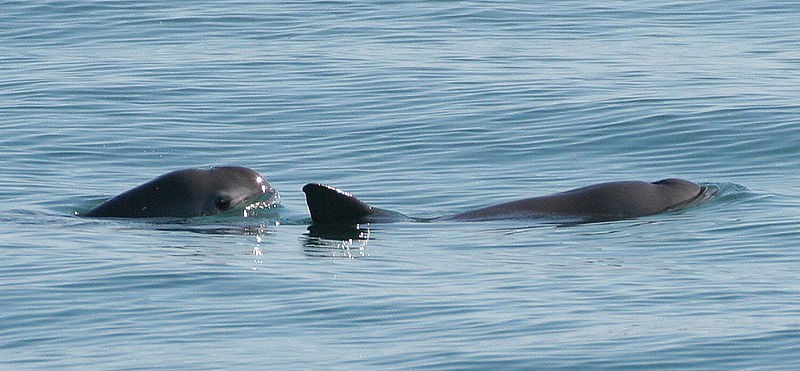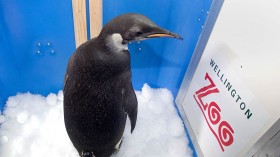Scientists examining the DNA of the vaquita porpoise, the world's smallest cetacean and rarest marine animal, have found an unexpected and heartbreaking finding.

The findings have been published in the journal Science.
Also Read: Rare River Dolphin Found Hanging Out With Anaconda
Genetically Challenging

With only at least ten individuals remaining, environmentalists felt the animal was at risk of deleterious mutations and inbreeding, as do other species with limited gene pools.
However, a group of international researchers from the University of California, Los Angeles (UCLA), the National Oceanic and Atmospheric Administration Fisheries (NOAA), and other institutions discovered that porpoises (Phocoena sinus) have fewer harmful mutations than other species and are thus likely to be better at avoiding the dangers of inbreeding.
Unfortunately, illegal fishing with gillnets - flat nets suspended vertically in the water that are notorious for trapping whales and turtles - is the greatest threat to the animals, which have a minimal geographical range and only live in the upper part of the Gulf of California, between Baja California and Mexico. Experts think the species is unlikely to survive if this does not halt promptly.
"Interestingly, we found the vaquita is not doomed by genetic variables, such dangerous mutations, that tend to afflict many other species whose gene pool has shrunk to a comparable extent," said Christopher Kyriazis, a UCLA Ph.D. student in ecology and a co-lead author of the study. The most serious threat they face is illegal fishing."
Poaching
Poachers employ enormous mesh gillnets to hunt the totoaba, an endangered fish that sells thousands of dollars on China's illicit market for its alleged medicinal virtues. The little porpoises are approximately 1.2-1.5 meters (4-5 feet) long and frequently become entangled and perish in the gillnets. While totoaba fishing and gillnets are prohibited in the vaquita's habitat in Mexico, many people claim that the rule is not always followed.
Genetic Search
The scientists looked at the genomes of 20 vaquitas that lived between 1985 and 2017 and used algorithms to forecast their extinction probability over the next 50 years. They determined that if gillnet fishing was stopped immediately, the vaquita stood a good chance of recovering from its population fall without suffering from inbreeding's genetic effects. However, if the practice continues, even in a bit way, the chances of recovery are dim.
"A conventional notion in conservation biology and population genetics is that small populations might accumulate detrimental mutations," said Kirk Lohmueller, senior co-author and UCLA assistant professor of ecology. Our discovery that the vaquita population has fewer severely harmful mutations suggests that they are better positioned to survive future inbreeding, which is good news for their overall recovery."
According to the experts, the vaquita is the marine equivalent of an island species because of its limited population and habitat.
Stopping the Trade
The unlawful totoaba trade has reduced the population from 576 to seven or eight people in the previous decade.
Related Article: Florida Manatees are Starving to Death Despite Feeding Efforts
For similar news, don't forget to follow Nature World News!
© 2024 NatureWorldNews.com All rights reserved. Do not reproduce without permission.

![Climate Change is Reducing Dust Levels Worldwide as Arctic Temperature Warms [Study]](https://1471793142.rsc.cdn77.org/data/thumbs/full/70320/280/157/50/40/climate-change-is-reducing-dust-levels-worldwide-as-arctic-temperature-warms-study.jpg)


![Tsunami Hazard Zones: New US Map Shows Places at Risk of Flooding and Tsunamis Amid Rising Sea Levels [NOAA]](https://1471793142.rsc.cdn77.org/data/thumbs/full/70325/280/157/50/40/tsunami-hazard-zones-new-us-map-shows-places-at-risk-of-flooding-and-tsunamis-amid-rising-sea-levels-noaa.jpg)
